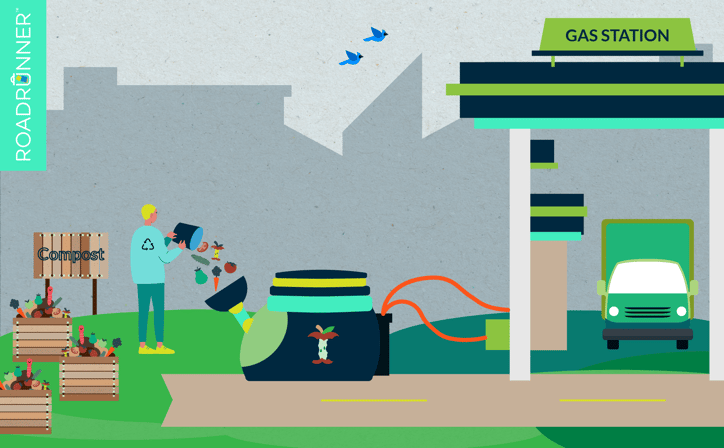As garden and farmer’s market season approaches, you may have some renewed interest in composting. The benefits of food waste may stretch far beyond growing veggies. There’s a growing interest from many states across the country in turning compost and wastewater into Biogas and Renewable Natural Gas (RNG) for fuel. The chemical similarities between this fuel and already used fossil fuels have some wondering where the difference truly lies. One key interest in Biogas and RNG comes from the ability to reduce landfill and wastewater methane emissions.
Our landfills are overflowing. Diverting any amount of waste by recycling reusable materials will be key to reducing emissions off-put by them. In 2018, food waste and other organic materials account for 22% of all municipal solid waste (MSW). Of the 22% of food waste, a massive 56% was sent to the landfill. This was an improvement from 2017, which showed over 70%. With technologies improving and awareness increasing, we are sure to see these numbers improve by the next EPA report.
Why is food waste in landfills such a problem?
Organic materials, such as food waste or landscaping waste, generate methane as they decompose. Methane has much more warming potential for our climate when it’s released into the atmosphere than an equivalent amount of CO2. More food waste in our landfills means more methane being released. According to the EPA, our landfills are already the third-largest source of methane emissions generated by human activity in the US.
They can use that waste to make fuel?
They already do. Across the U.S. landfills and anaerobic digesters within wastewater treatment facilities are being utilized to treat biogas to be used as fuel and energy. The landfill gases that were either naturally let out into the atmosphere or burned off in flares are now being redirected into Biogases and RNGs for real-life situations.
Isn’t this just replacing one gas for another?
The methane would have been released into the atmosphere anyway through the natural decomposition within the landfills or digesters. At least in this fashion, it can be rerouted and put to use, limiting another harmful gas while still powering our world. So are we just replacing one gas for another? Yes. But it's a gas that can now be utilized and harnessed.
Waste is the problem.
Waste management is about far more than what we throw away. It’s about thinking about if we are wasting materials that could have further use. Food waste can have significant benefits as compost, and potentially as fuel. There are many challenges surrounding the use of food waste as fuel, which include all of the challenges of using natural gases as fuel in the first place. However, finding innovative ways to utilize our waste, especially waste that is already in the landfills, is a great start.
You can power your garden to grow the most delicious foods right in your own backyard by composting your food waste. The same process that creates those incredible tomatoes might also someday power your car, home, or even the neighborhood recycling truck. Capturing and reusing the gas created by the breakdown of food waste is another step we can take to reduce our reliance on fossil fuels and promote a cleaner, greener planet for all of us.
